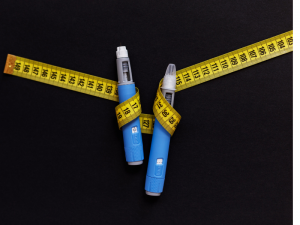Are you always tired all the time, struggling with dry skin and hair loss or gaining weight despite no changes in your eating habits. While these can be signs of many things, they might suggest subclinical hypothyroidism.This condition often goes undetected because blood tests show only a slightly elevated TSH level (thyroid-stimulating hormone), while T3 and T4 remain within the normal range. Some people have no symptoms at all, while others feel very similar to those with full-blown hypothyroidism.
 What Are the Symptoms?
What Are the Symptoms?
Although up to one-third of people with subclinical hypothyroidism don’t experience symptoms, others may notice:
- Fatigue and low energy
- Dry skin and thinning hair
- Cold sensitivity
- Brain fog or memory issues
- Constipation
- Weight gain
- Puffy face or pale complexion
- Heavy or irregular periods
- Depression or low mood
- Enlarged thyroid (goitre)
It’s not always easy to link these symptoms to thyroid issues, especially during the colder months or during stressful life stages. But if they persist, it’s worth a closer look.
Who Is at Risk?
Subclinical hypothyroidism affects up to 20% of adults, and is more common in:
- Women
- Older adults
- Those with a family history of thyroid or autoimmune conditions
- People who’ve had thyroid surgery or radioactive iodine treatment
- Those taking lithium or iodine-containing medications
Diagnosis and the Debate Around Treatment
A blood test measuring TSH and thyroid hormones is the only way to diagnose subclinical hypothyroidism. However, here’s where it gets tricky: treatment is a subject of controversy.
A 2019 British Medical Journal (BMJ) review looked at data from 21 trials involving over 2,000 people. The conclusion? For most adults, taking thyroid hormones (like levothyroxine) doesn’t significantly improve symptoms or quality of life.Instead, current guidance recommends:
- Monitoring rather than medicating in most cases
- Treating only if symptoms are significant or if you’re at high risk of progression, including:
- Pregnancy or trying to conceive
- Early menopause or premature ovarian failure
- Being over 60
- Having other autoimmune conditions (e.g., type 1 diabetes)
Can It Progress?
Yes around 2% to 5% of people with subclinical hypothyroidism go on to develop overt hypothyroidism each year. Risk factors for progression are similar to those of full hypothyroidism, including autoimmune thyroiditis (Hashimoto’s), certain medications, and thyroid injury.
What About Diet and Supplements?
While no diet can “cure” subclinical hypothyroidism, certain nutrients support healthy thyroid function:
- Iodine – essential for thyroid hormone production
- Vitamin B12 – supports energy metabolism and nerve health
- Selenium – aids thyroid hormone conversion
- Zinc – essential for hormone balance and immune function
If you’re considering supplements, consult your doctor first to avoid potential interactions or excessive intake.
Final Thoughts
Subclinical hypothyroidism sits in that grey zone between “your bloods are fine” and “you don’t feel right.” It can be frustrating especially when symptoms are vague or dismissed.
If this sounds familiar, don’t hesitate to ask questions, seek clarification, and explore your options. Whether that means regular monitoring, lifestyle tweaks, or being heard your experience matters. You know your body best.
Related Posts in This Series:
- Part 1: Thyroid Disorders – The Inside Scoop
- Part 2: Hypothyroidism and Hashimoto’s Disease
- Part 3: Hyperthyroidism
- Part 4: Subclinical Hypothyroidism Explained (this post)







